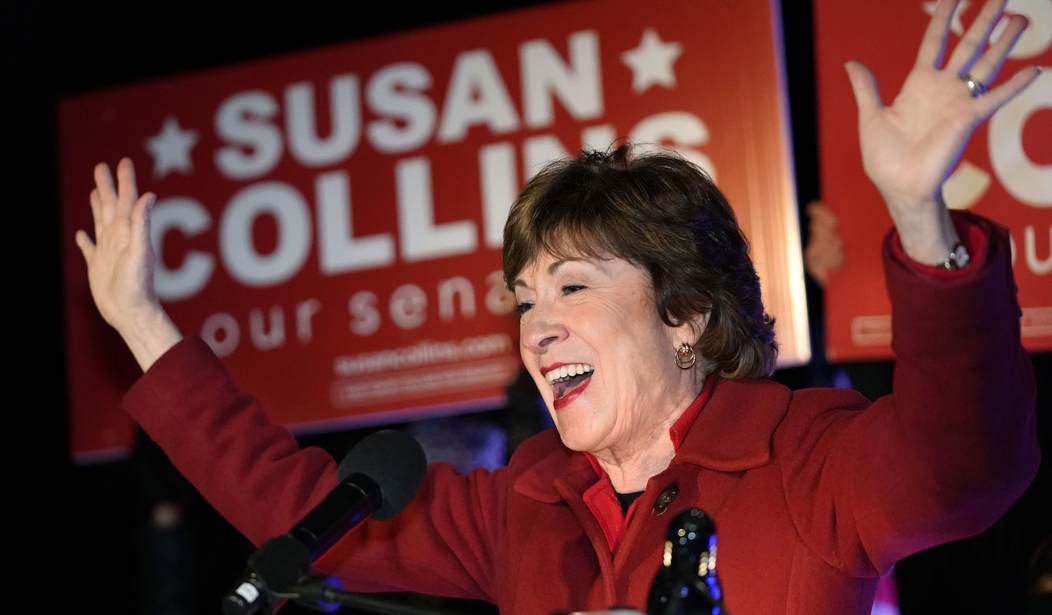Sen. Susan Collins (R-ME) is working on legislation ostensibly intended to prevent mass shootings like the one that happened in Maine on October 27. The tragic incident took place when Robert Card, a member of the Armed Forces, went on a spree in various locations, killing 18 people. He was later found dead after a manhunt.
It was later revealed that Card had a history of mental illness and had even threatened violence against his fellow servicemembers at a military base. Yet, he was still able to legally purchase a firearm despite Maine’s yellow flag law, which allows for the temporary seizure of firearms from those deemed to be a risk to themselves or others. It appears Sen. Collins seeks to strengthen these laws.
Republican U.S. Sen. Susan Collins is drafting a bill that would direct branches of the military to utilize state crisis intervention laws to confiscate firearms from people deemed to be a danger to themselves or others.
The proposal from Collins is still in development, but it was touted Monday during a Maine Calling program by David Trahan, head of the Sportman's Alliance of Maine, an influential gun rights advocacy group.
SAM helped draft Maine's version of a crisis intervention law, more commonly known as red or yellow flag laws.
Trahan has repeatedly said that Maine's yellow flag law should have been used to seize the guns of the Army reservist who killed 18 people and wounded 13 others in the worst mass shooting in state history in October.
"That should have been resolved months before that, he (the gunman) should never have had a gun to conduct this," Trahan said Monday. "That's the place where our system failed and that's where our organization will put our very significant influence in the coming months."
However, any proposed red flag legislation is likely to meet with resistance. While advocates for these measures argue that they are essential for preventing potential violence, opponents point out the inevitability that such laws will be abused and could violate due process and individual rights. Collins’ bill will probably try to find a middle ground between the two sides of the debate.
This also reflects the broader discussion over gun control and gun rights, especially when mental health is involved. In many similar shootings, the gunman was known to have mental issues. In some of these cases, they were already on law enforcement’s radar, but nothing was done to stop them.
The fact that the Maine shooter was part of the military adds another dimension to this issue. Despite the signs Card exhibited, the Army appeared not to take action. Moreover, these tragedies have brought to the surface the reality that the nation is not doing enough to address mental health in America.
As Collins’ team crafts this legislation, it will be important to highlight how the law will impact personal liberties while attempting to keep people safe. Most of the laws favored by the anti-gunner lobby are little more than “feel good” laws designed to make it appear as if the state is addressing an issue when they really aren’t. It's reasonable to assume that whatever Collins comes up with is likely to be more of the same.













Join the conversation as a VIP Member